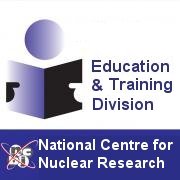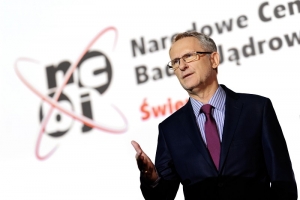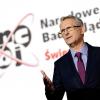New NCBJ Director General
2015.10.26 13:02 - adminNCBJ, the largest research Institute in Poland, has a new Director General. The post held for the last 8 years by Professor Grzegorz Wrochna (till September 2011 Director of Institute for Nuclear Studies, NCBJ’s predecessor) has been taken over by Associate Professor Eng. Krzysztof Kurek, former NCBJ Secretary for Scientific Matters.
Professor Kurek took up the position as of October 25, 2015 for a four-year long term. His vision of development won the competition opened in May 2015 by NCBJ Scientific Council and he was recommended to Minister of Economy as the best candidate. The nomination was signed by Janusz Piechociński, Polish Deputy Prime Minister and Minister of Economy in the second half of September.
–“In a very successful way NCBJ blends fundamental research conducted at the worlds highest level with applied research. The fields involved include broadly understood nuclear physics, elementary particle physics, astrophysics, plasma physics, material sciences, accelerator/detector physics, interdisciplinary research from the borderland between nuclear chemistry, biology, nuclear medicine, and medical physics (development/manufacture of radiopharmaceuticals). We are the sole research centre in Poland with competences in nuclear power and nuclear reactor physics (the competences have been recently revived at expense of some significant effort)” – that way Professor Kurek has commented NCBJ’s current profile. – “Large research institutes can hardly function properly if not equipped with some unique research infrastructure. In Świerk we’ve got the MARIA research reactor, the POLATOM Radioisotope Centre, and the CIŚ Świerk Computer Centre. However, these substantial assets are not sufficient to provide conditions for smooth growth in the current budget situation. Therefore the CERAD project will be NCBJ’s strategic goal for the coming years. Key elements of the project include (i) large cyclotron capable to accelerate protons, deuterons and/or alpha particles to the energy of 30 MeV suitable for research and production of radioisotopes (project’s ‘heart’); (ii) hot chambers, labs and some accompanying infrastructure necessary for commercial production of radioisotopes. That highly graded project has been listed (together with three others) on the Polish roadmap of large research facilities. We strongly believe that the project will be funded by Polish authorities. Of course we will also be trying to raise some Horizon 2000 European funds for other infrastructural projects and to boost our commercial activities as much as possible – said NCBJ new Director General.
G. Wrochna who has come back to NCBJ High Energy Physics Division (to the Professor’s post) intends to focus on scholarly work. However, he is also going to serve as NCBJ Director Proxy for International Collaboration.
–“Recent years were very busy both for me personally, and generally within the Świerk research centre. We have managed to improve, develop or modernise plenty of things in spite of not always favourable circumstances” – said Professor Wrochna. – “Merger of the former POLATOM Institute of Atomic Energy with the former Andrzej Sołtan Institute for Nuclear Studies into National Centre for Nuclear Research (NCBJ) has created a new quality in the Polish science landscape – an institution of a conspicuous potential that soon started to play a key role in numerous scientific and technical ventures of nation-wide significance. More that 320 million PLN raised from various sources, predominantly from EU programmes helped to accomplish numerous infrastructural projects that significantly improved quality of the Świerk centre as a place to conduct R&D. Number of scientific papers and Hirsch index clearly increased, consequently NCBJ’s position both home and on the international arena has significantly strengthened. Awareness of the fact that I could actively participate in all that is (and for ever will be) for me a source of a great satisfaction”.
***
Krzysztof Kurek graduated at the Warsaw University of Technology Technical Physics and Applied Mathematics Faculty in 1980. His PhD on hadrons, partons, quarks and chromo-dynamics was defended at Warsaw University Physics Faculty in 1986. In 2012 he finished his DSc proceedings with a thesis entitled “Understanding the Nucleon’s Spin Structure. The Direct Gluon Polarisation Measurement at the COMPASS Experiment”. His professional interests include physics of elementary particles/particle interactions, quantum field theory (in particular quantum chromo-dynamics), structure of the nucleon, application of neuron networks in high energy physics.
Associate Professor Eng. Krzysztof Kurek used to work at high energy physics experiments run with the use of muon beams in CERN (Geneva): New Muon Collaboration, Spin Muon Collaboration, and Common Muon Proton Apparatus for Structure and Spectroscopy (COMPASS). Since 2013 member of the Polish team working on the LHCb experiment run at the LHC accelerator in CERN. Author or co-author of more than 250 papers published in international recognized scientific journals. Former Head of NCBJ PhD Studies and former NCBJ Scientific Secretary. NCBJ Director General since October 25, 2015 .





















